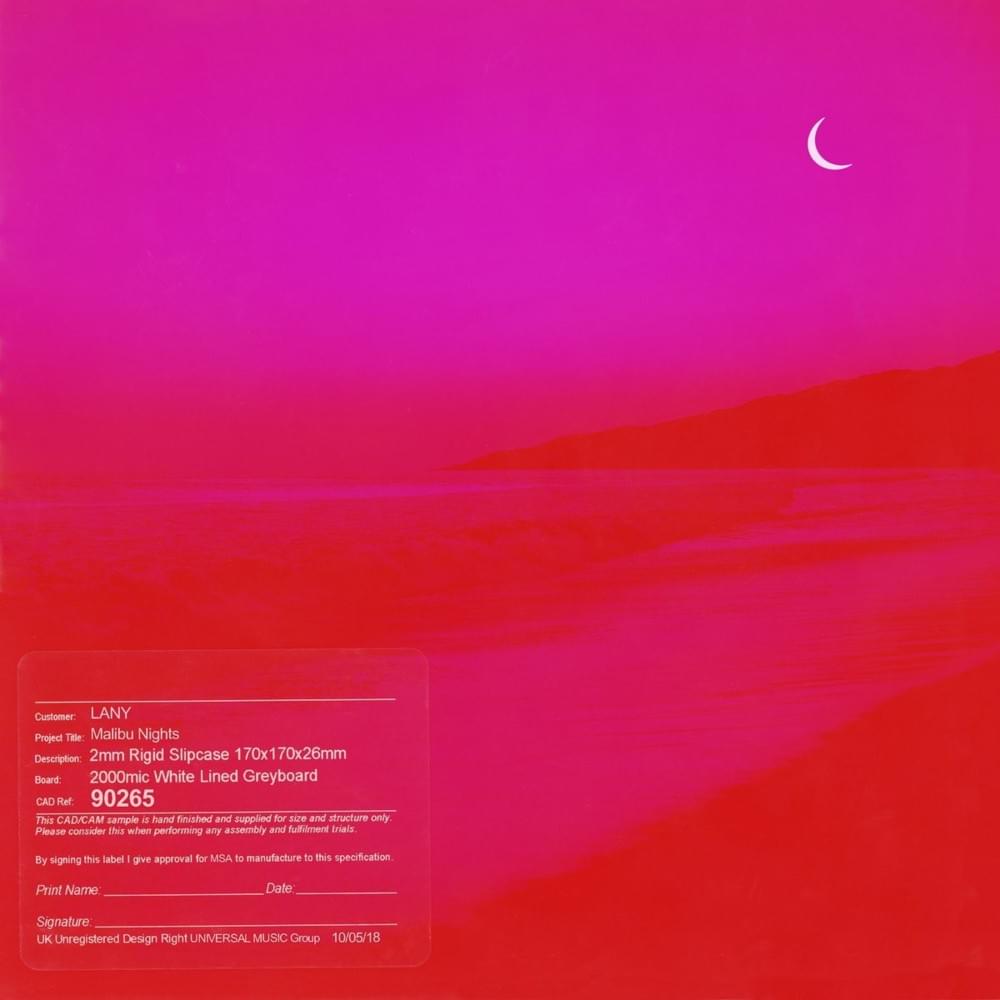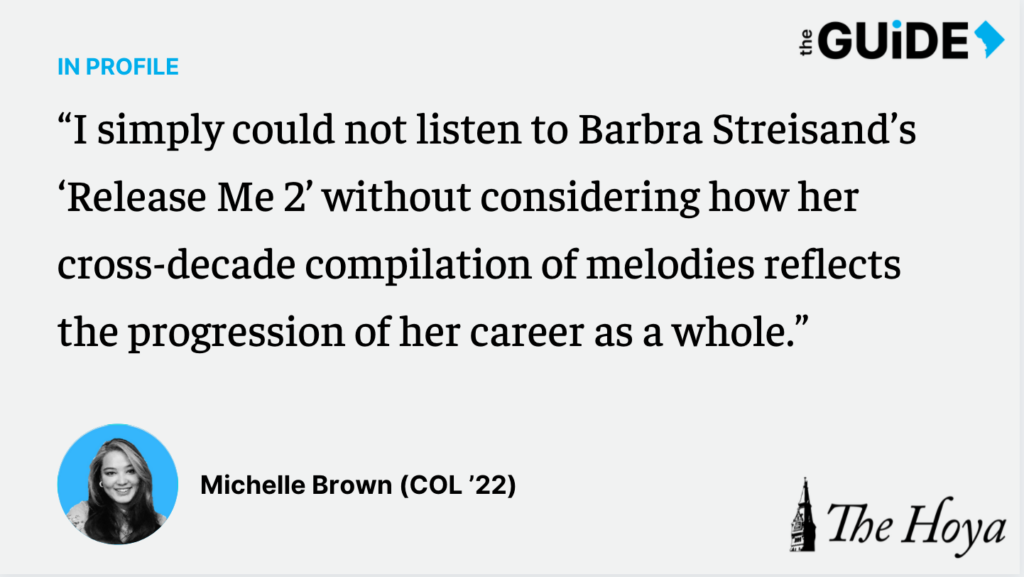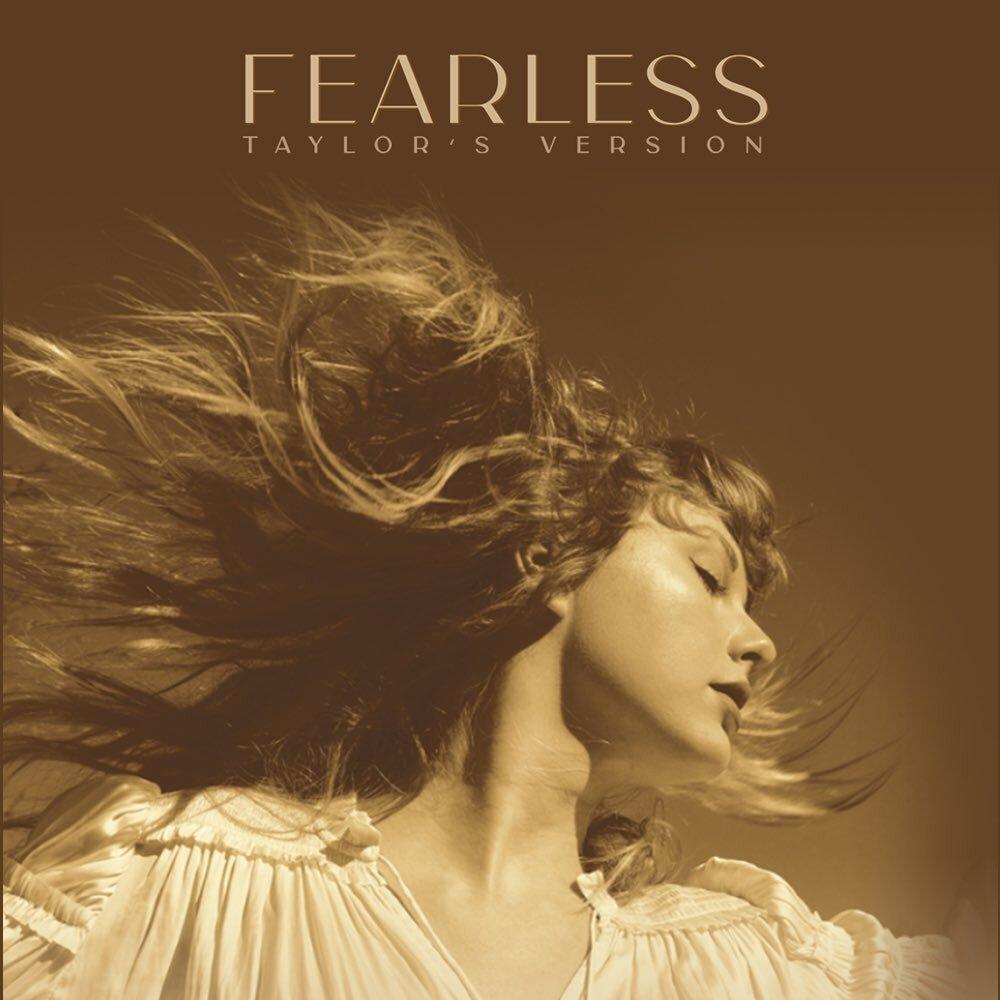★★★★☆
“What do you do with a broken heart?” If you’re Paul Jason Klein, frontman of indie-pop trio LANY, you write an album.
The genesis of LANY’s sophomore album was not premeditated. After experiencing the incomparable pain of a first heartbreak, Klein’s music was his method of survival. According to an interview with Harper’s Bazaar, after 41 days of studio time, Klein “lifted [his] head up for the first time and [said] ‘Holy s—t, we just wrote album two.’” Thus “Malibu Nights” was born, concluding LANY’s “rose era,” a reference to the iconic rose emblem of their debut self-titled album, and ushering in their “moon era.”
The band’s first advance single, “Thru These Tears,” was released in mid-July and exhibited promise for the remaining eight tracks on the album. While this song retains LANY’s signature synthpop style, it introduces unexpected sections of stripped vocals and piano. The only other time LANY has minimalized the musical traffic in a song was in “ILYSB – Stripped,” and even still, it did not reach the simplicity found in “Thru These Tears.”
Furthermore, though much of “Malibu Nights” was inspired by Klein’s very public breakup with pop star Dua Lipa, the project is more than a break-up album. Klein initially wrote the track to make sense of the painful situation he was in, but the song is relatable for anyone who seeks hope in even the most sorrowful situations.
Yet, “Malibu Nights” still leaves something to be desired. LANY was cognizant of their gloomy subject matter and created an effective juxtaposition through the upbeat nature of their tracks and visuals to combat the sad undertones. However, the heavy repetition of this technique engendered the album’s principal downfall: its noticeable lack of musical diversity.
While “Malibu Nights” employs sonic patterns reminiscent of their previous discography, there is a clear variation of style between the 2018 release and their 2017 eponymous album. The problem of uniformity arises when “Malibu Nights” stands alone. Individually, the songs have their own merits, but when played in its entirety it is difficult to differentiate the tracks from one another until the lyrics emerge.
However, upon further encounters with the album, there is a certain depth to be derived from “Malibu Nights.”
The authenticity and depth of emotion in this album is its saving grace. Each track showcases an intense and brave vulnerability which results in universality. Those who have suffered from heartbreak will feel a potent connection to Klein as he recounts the stages of grief he endured, while those who have not can still absorb the album’s vast emotional range.
The coupling of the snare drums with Klein’s confusion in “Thick and Thin” lay the groundwork for his personal crisis. This stylistic decision is a mere example of the artistic thoughtfulness for which LANY is notorious . Alongside Klein, credit is owed to other LANY members Charles Leslie Priest and Jake Clifford Goss for the execution of these decisions; their masterful work with drums and synthesizers establishes the foundation for “Malibu Nights.”
The album finds its turning point in “I Don’t Wanna Love You Anymore,” which departs from the two preceding songs by changing the energy and slowing the tempo, signaling Klein’s own decisive moment.
The following track, “Let Me Know,” maintains the subdued rhythm of the former, while also infusing hints of jazz and an increased focus on the lyrics. This amalgamation of old and new mirrors the song’s dilemma of simultaneously longing for the past and needing to move on.
“Run” and “Valentine’s Day” are more explicit in their messages with direct lines such as “I heard from a couple friends / That you’re back with your ex again / But I know there’s no way / After everything you said ‘bout him,” and “No matter what I tell myself / She’s not as good, she’s not as good / She’s not as good as you.” Through these tracks, LANY reintroduces their traditional sound with a twist, expressing a sort of revival.
The album comes full circle with its title track. The song comes in the form of a ballad, which is atypical for LANY. Powerfully honest lyrics like “There’s no reason, there’s no rhyme / I found myself blindsided by / A feeling that I’ve never known / I’m dealing with it on my own” are accompanied by an unprecedented emphasis on the piano and Klein’s vocals. Though not devoid of additional instrumentals, this heightened attention allows the emotions behind the lyrics take center stage. “Malibu Nights” not only cues the finale of the album, but also the resolution of Klein’s heartbreak.
Aside from the initial impression of musical monotony, LANY’s endeavor to confront the complexities of the highs and lows of human life through music is a triumph. Though the band’s sophomore album is seven tracks shorter than their debut, LANY effectively curated a collection of tracks that stays true to their sound while daring to exhibit courageous vulnerability. This injection of risk into their distinct sound results in a beautifully introspective product that does not merely speak to listeners but takes them alongside Klein through his emotional journey.










saad pirzada • Jul 5, 2019 at 1:16 pm
great article